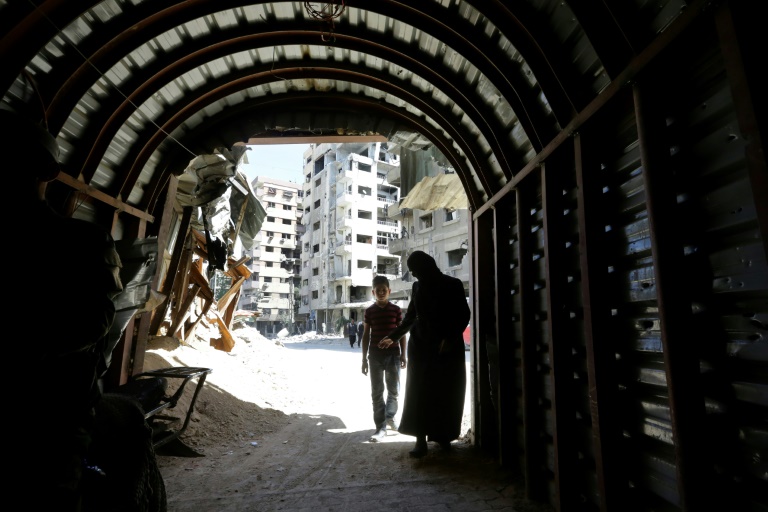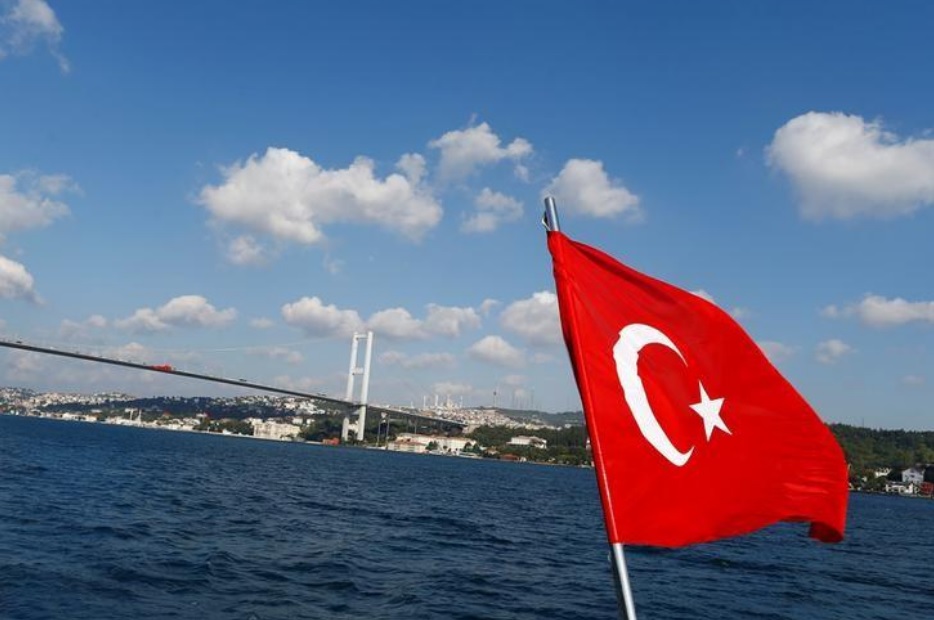
Oscar-nominated Syrian director Feras Fayyad has risked his life to chronicle the atrocities of the Assad regime, and suffered torture in prison because of his films.
Despite having his nails pulled out and electric shocks administered to intimate parts of his body, Fayyad continues to document Syria’s eight-year war, which exploded back onto the global stage last week with Turkey’s invasion.
But he remains in awe of a young female doctor who ran an underground hospital through a devastating, years-long siege — the subject of his new film “The Cave,” out in theaters this week.
“She saw so much. I don’t think anyone alive — just the Holocaust survivors — has seen the same size of what she saw,” Fayyad told AFP. “The barbaric siege, the longest running siege in Syria’s modern history in Eastern Ghouta … Nobody can imagine this.”
Amani Ballour, the young female pediatrician who is the film’s subject, ran a subterranean network of tunnels and makeshift wards and operating rooms beneath the final rebel foothold at the gates of Damascus.
She and her team were the first to respond and the last hope for many civilians — including children — hit by relentless waves of Russian and Syrian regime bombing, until a 2018 chemical attack finally forced them to evacuate.
Despite her heroics, Fayyad said Amani took some convincing that the world would be interested in a film about her story.
Harrowing footage
“Why do you think they will respond when there’s bigger issues happening around us?” Amani asked Fayyad, who admitted he did not have an answer.
“I want to try — I want to trust that people could respond to this,” he recalled telling her. “I don’t think people will (be able to) move their eyes from that, from what you do.”
The result is a harrowing 102-minute documentary, shot by a local camera crew still living in Ghouta, showing life below and above ground as bombs rain and casualties are rushed in on stretchers and wheelbarrows.
The film — from National Geographic and Danish Documentary Films — was directed by Fayyad, in daily contact with the crew from rebel-held northern Syria.
Fayyad, the first Syrian director nominated for an Oscar with 2017’s “Last Men in Aleppo,” instructed them to depict everyday life in claustrophobic, cinema verite style — without voice-over or direct-to-camera interviews.
Amongst the tears and tragedy there are vignettes of everyday life, from a young nurse’s creative attempts to cook for 150 people with scant supplies, to a secret birthday party featuring surgical gloves for balloons.
Footage of medics scrambling to deal with the chlorine gas attack’s deadly aftermath is especially searing.
In addition to her bravery, Fayyad chose Amani for another reason. She was an extremely rare — possibly the first — female hospital director in deeply patriarchal Syria.
Early in the film she is berated by a desperate patient’s husband, who blames the hospital’s lack of medicine on its female director.
‘I feel guilty’
Fayyad, who grew up in a female-dominated household with a Kurdish mother and seven sisters, said he is acutely aware of harassment and even violence against women who refuse to conform.
“Along with the torture I’ve experienced, I heard the sounds of women who were tortured because of their gender,” he said. “And I was threatened that they will bring my mom and my sisters to the prison.
“There were times when I heard the sounds and I felt like it was my mother and my sister (being tortured).”
Amani was able to escape to northern Syria, and eventually Europe via Turkey — joining the refugee exodus which has sparked intense, polarized debate in the West.
Fayyad himself was earlier smuggled to safety across the Jordan border, and now travels between his home in Copenhagen and work in northern Syria.
Like many, he has been alarmed by recent events which saw US forces withdraw from Kurdish-held northern Syria, and Turkey launch an offensive across the border.
“I think what’s happening now it’s very, very scary because it’s extending the time of the war in Syria, and there are more victims,” he said, predicting another wave of refugees will follow.
“Because I’m not there, I feel guilty,” admitted Fayyad, who spoke to AFP in Los Angeles. “Like I’m sitting here away, and thinking every day about my family and my friends and colleagues who are suffering.
“I feel like you have to do something… and bring these voices. I try to bring the hope for these people.”
“The Cave” opens in select US theaters on Friday.




